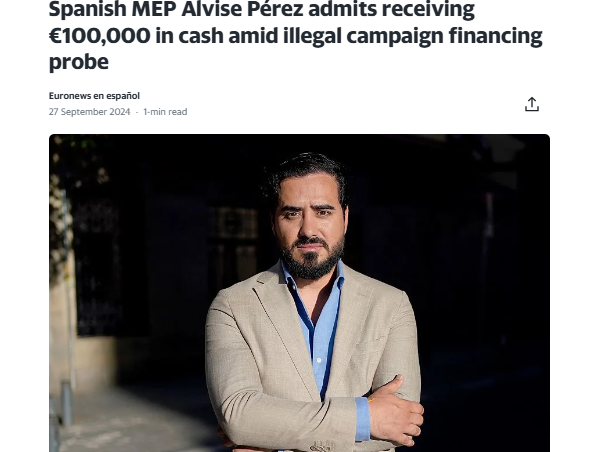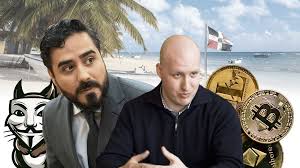The Allure of Easy Wealth
The dream of effortless riches has always captivated the hopeful, and Madeira Invest Club (MIC) masterfully exploited this desire. Launched in 2023 under the enigmatic leadership of Álvaro Romillo, who cloaked himself in the alias “CryptoSpain,” MIC positioned itself as a private investment haven. It dangled promises of astronomical returns—up to 53% annually—through ventures in digital art, cryptocurrencies, luxury cars, and real estate. For a steep €2,000 membership fee, investors were lured into what was marketed as an elite club, one that claimed to sidestep taxes and conventional financial systems. But beneath the glossy facade, a far darker reality was brewing, one that would unravel into one of Spain’s most notorious financial scandals.

The Genesis of a Grand Illusion
Álvaro Romillo, the self-styled financial guru, built his reputation online by preaching tax evasion tactics and cryptocurrency strategies. Hiding behind a mask and the pseudonym CryptoSpain, he cultivated an aura of mystique and expertise. His brainchild, Madeira Invest Club, emerged as a supposed antidote to traditional banking woes—offering members a chance to multiply their wealth without the burden of taxes or inflation. The club’s website and social media channels buzzed with testimonials of satisfied investors and screenshots of alleged profits, painting a picture of unassailable success. Yet, these were carefully curated illusions, designed to hook the unwary with visions of financial freedom.
The Mechanics of the Scheme
At its core, MIC operated as a classic Ponzi scheme, though it wore the guise of a sophisticated investment platform. New members were required to pay €2,000 upfront, with additional investments funneled into so-called “obras”—digital art pieces or luxury assets that promised guaranteed returns. The club claimed to buy and sell these assets at a profit, redistributing earnings to its members. In reality, early payouts were funded not by genuine profits but by the influx of new investors’ money. This unsustainable model relied on constant recruitment, with each new wave of capital propping up the illusion of prosperity for those already ensnared.

The Role of Sentinel BQ: A Shadowy Accomplice
Parallel to MIC, Romillo established Sentinel BQ, a murky entity purportedly dedicated to secure storage of cash, gold, and cryptocurrencies. Investors were encouraged to deposit funds into Sentinel’s safes, with the promise that these “loans” would shield their wealth from taxation. The setup was a stroke of malevolent genius—by framing deposits as loans, MIC sidestepped regulatory oversight while fostering an air of exclusivity. However, when the scheme began to crumble, these safes were allegedly emptied, leaving investors with nothing but broken promises and inaccessible funds.
The CNMV Warning: A Red Flag Ignored
As early as May 2023, Spain’s financial regulator, the Comisión Nacional del Mercado de Valores (CNMV), flagged MIC as an unauthorized “chiringuito financiero”—a term for fraudulent financial outfits. The CNMV explicitly warned that MIC lacked the licenses to offer investment services, highlighting its risky operations. Despite this public admonition, the club’s charismatic pitches and Romillo’s cult-like following drowned out the alarm bells. Many investors, swayed by tales of quick riches, dismissed the regulator’s caution as bureaucratic overreach, a decision they would come to regret.
The Social Media Mirage
MIC’s marketing was a masterclass in digital deception. Through Telegram channels, TikTok videos, and Instagram posts, Romillo and his team crafted a narrative of relentless success. They showcased luxury watches, exotic cars, and sprawling properties as evidence of the club’s prowess. Followers were bombarded with jargon-laden updates about “market analysis” and “exclusive opportunities,” creating a sense of urgency to join before the next “obra” sold out. This relentless propaganda kept skepticism at bay, even as the cracks in the operation began to widen.
The Human Cost: Victims Left in Ruin
When MIC abruptly shuttered in August 2024, the fallout was catastrophic. Thousands of investors, from small-time savers to high-net-worth individuals, found themselves locked out of their accounts. The club’s Telegram channel vanished, its offices stood empty, and its phone lines went dead. Estimates of the financial damage vary, with some sources citing losses as high as €600 million, though legal filings peg the figure at a still-staggering €11 million. For many, the loss was more than financial—it was a betrayal of trust, leaving lives upended and futures uncertain.

The Legal Reckoning Begins
The collapse triggered a swift legal response. By October 2024, the Audiencia Nacional, Spain’s high court for major crimes, admitted three lawsuits accusing MIC and Romillo of orchestrating a pyramid scheme. Filed by consumer groups like Ances and associations representing affected investors, the complaints detailed a pattern of fraud and misrepresentation. The court’s judge, José Luis Calama, noted the clarity of the alleged crimes, citing the vast number of victims and the scale of the losses. The legal battle, however, promises to be protracted, with Romillo’s whereabouts uncertain and assets likely hidden offshore.
Álvaro Romillo: The Man Behind the Mask
Romillo’s persona as CryptoSpain was central to MIC’s allure. His online videos, often delivered with a masked face, blended bravado with pseudo-financial wisdom. He positioned himself as a rebel against the system, railing against banks and tax authorities while promising liberation through his club. Yet, this carefully crafted image concealed a more troubling truth. Romillo, who also went by “Luis,” had no verifiable track record in legitimate finance, and his ventures were riddled with red flags. His anonymity, once a marketing ploy, became a shield as the scheme unraveled.

The Alvise Pérez Connection: A Political Scandal
Adding fuel to the fire, MIC’s collapse drew attention to its ties with Alvise Pérez, a controversial Spanish politician. Reports emerged that Romillo had paid Pérez €100,000 in cash, allegedly to bolster his campaign. While Pérez’s involvement in the scheme remains under scrutiny, the association cast a shadow over both the club and his political aspirations. Investors, already reeling from their losses, demanded accountability, with some calling for Pérez to repay the funds to offset their suffering. The scandal underscored the far-reaching consequences of MIC’s deceit.
The Psychology of Greed and Trust
Why did so many fall for MIC’s promises? The answer lies in a potent mix of greed, desperation, and trust. In an era of economic uncertainty, the prospect of high returns with minimal effort was irresistible. Romillo exploited this vulnerability, leveraging social proof—fake testimonials, staged success stories—to build credibility. Investors, lulled by the club’s exclusivity and Romillo’s charisma, overlooked the absence of transparency and regulation. The scheme thrived on the human tendency to believe in the too-good-to-be-true, especially when cloaked in sophistication.
The Role of Cryptocurrencies: A Double-Edged Sword
Cryptocurrencies were the lifeblood of MIC’s operations, offering both opportunity and opacity. By encouraging investments in Bitcoin and other digital assets, the club tapped into the crypto boom while obscuring the flow of funds. Blockchain’s anonymity made it difficult to trace transactions, allowing Romillo to move money with impunity. For investors, the allure of crypto’s high returns blinded them to the risks, while the lack of regulatory oversight left them exposed. MIC’s collapse serves as a stark reminder of the dangers lurking in unregulated financial frontiers.
The Aftermath: A Community in Crisis
The closure of MIC spawned a wave of grassroots resistance. Platforms like afectadosmadeirainvestclub.com emerged, uniting victims to share stories and coordinate legal action. Telegram groups buzzed with anguished accounts of lost savings, while law firms like Aránguez Abogados rallied clients for collective lawsuits. These efforts, though valiant, face an uphill battle. Recovering funds from a scheme built on deception is notoriously difficult, especially when assets have been siphoned to offshore havens. Still, the community’s resolve reflects a refusal to let MIC’s architects escape unscathed.
Lessons Unlearned: The Persistence of Financial Scams
MIC is not an isolated case but part of a long lineage of financial frauds. From Charles Ponzi’s 1920s swindle to modern crypto scams, the playbook remains eerily consistent: promise outsized returns, dazzle with charisma, and vanish when the house of cards collapses. Despite countless warnings and regulatory efforts, such schemes persist, fueled by human optimism and economic insecurity. MIC’s saga underscores the need for vigilance, education, and stronger oversight to protect the vulnerable from predators like Romillo.
The Global Context: A Warning Beyond Spain
While MIC’s epicenter was Spain, its reach extended globally, drawing investors from Latin America, Europe, and beyond. The scheme’s reliance on cryptocurrencies and digital platforms made it borderless, exploiting gaps in international regulation. This global footprint amplifies the urgency of coordinated efforts to combat financial fraud. Countries must share intelligence, tighten crypto oversight, and empower consumers with knowledge to prevent similar disasters. MIC’s collapse is not just a Spanish tragedy but a cautionary tale for the world.
The Future of Justice: Can Victims Find Redress?
The legal proceedings against MIC and Romillo are in their infancy, with many hurdles ahead. Prosecutors must untangle a complex web of transactions, locate hidden assets, and prove intent in a court of law. For victims, the process is agonizingly slow, with no guarantee of restitution. Some have turned to private recovery firms, though these too carry risks of further exploitation. The best hope lies in collective action—lawsuits, advocacy, and public pressure to hold fraudsters accountable. Yet, even as justice inches forward, the scars of betrayal linger.
The Role of Regulators: Too Little, Too Late?
The CNMV’s early warning about MIC was a critical intervention, but it failed to halt the scheme’s momentum. Regulators face a daunting challenge: balancing innovation with oversight in a rapidly evolving financial landscape. Cryptocurrencies, in particular, pose a conundrum, as their decentralized nature resists traditional controls. The MIC debacle highlights the need for proactive measures—real-time monitoring, public education campaigns, and harsher penalties for unlicensed operators. Without these, regulators risk remaining one step behind the next Romillo.
A Call for Financial Literacy
One of MIC’s most enduring lessons is the power of financial literacy. Many victims lacked the tools to scrutinize the club’s claims, falling prey to slick marketing and false promises. Schools, governments, and communities must prioritize education on investments, taxes, and scams. Understanding the basics—why high returns always carry high risks, how to verify a company’s credentials—can inoculate against fraud. Empowering individuals with knowledge is the strongest defense against the next Madeira Invest Club.
The Moral Decay of Greed
Beyond the financial toll, MIC’s collapse exposes a deeper malaise: the moral decay fueled by greed. Romillo’s scheme thrived not just on victims’ trust but on a willingness to exploit it for personal gain. His lavish displays of wealth—yachts, cars, watches—were not just marketing tools but symbols of a worldview that prized profit over principle. This ethos, unchecked, erodes the social fabric, leaving communities fractured and cynical. The fight against such scams is as much about restoring values as recovering funds.
Conclusion: A Bitter Legacy
Madeira Invest Club’s rise and fall is a grim parable of ambition gone awry. What began as a seductive promise of wealth ended in devastation, with thousands of lives upended and trust shattered. Álvaro Romillo’s scheme, built on lies and exploitation, serves as a stark warning of the perils awaiting those who chase easy riches. As victims seek justice and regulators scramble to adapt, the saga underscores a timeless truth: true wealth lies not in shortcuts but in diligence, transparency, and integrity. The scars of MIC will fade, but its lessons must endure, lest history repeat itself.







